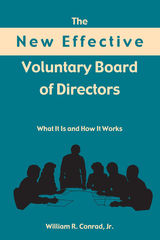
A quiet revolution came to corporate America during the late 1980s and early 1990s. Large shareholders—pension funds, insurance companies, money manages, and commercial banks—exercised new-found muscle, pressuring senior managers to improve disappointing financial results by reshaping their organization. Michael Useem reveals how those investor pressures have transformed the inside structures of many corporations, better aligning them with shareholder interest.
Useem draws on numerous sources, including interviews with senior managers and intensive studies of seven large corporations representing a range of restructuring experiences and industries—including pharmaceuticals, transportation, chemicals, retailing, electronics, and financial services. He shows that organizational changes have affected many areas of corporate life: headquarters staffs have been reduced authority has filtered down to operating units, and compensation has become more closely tied to performance. Change also extends to corporate governance, where managers have fought back by seeking legal safeguards against takeovers and by staggering board terms. They’ve also put significant resources into building more effective relations with shareholders.
As Useem demonstrates, this revolution has reached beyond the corporation, influencing American politics and law. As increasing ownership concentration has caused companies to focus more attention on shareholders, corporate political agendas have shifted from fighting government regulation to resisting shareholder intrusion.

More than one million nonprofit or voluntary organizations have been incorporated in the United States, and there are countless others throughout the world. Although they range in size and purpose from small social clubs to large and complex organizations such as universities and hospitals, they all have one thing in common: a board of directors of some type. What these boards do varies as much as the organizations themselves.
The New Effective Voluntary Board of Directors provides clear answers, illustrated with graphics, to previously ambiguous and bewildering questions, such as definitions of policy, the function of boards, the role of board members, and many other issues.
Dealing with the delicate balance in nonprofit organizations, the legal implications of serving on a board, the nonprofit leadership and management model, and other matters of concern, William Conrad applies his lifelong experience to providing a comprehensive, practical, and concise tool for those involved in the unique challenges associated with the leadership and management of nonprofit and voluntary groups.
With nearly 30,000 copies of earlier editions of this work in print, Swallow Press is pleased to publish the new, updated, and revised edition of this classic in its field.
READERS
Browse our collection.
PUBLISHERS
See BiblioVault's publisher services.
STUDENT SERVICES
Files for college accessibility offices.
UChicago Accessibility Resources
home | accessibility | search | about | contact us
BiblioVault ® 2001 - 2024
The University of Chicago Press









